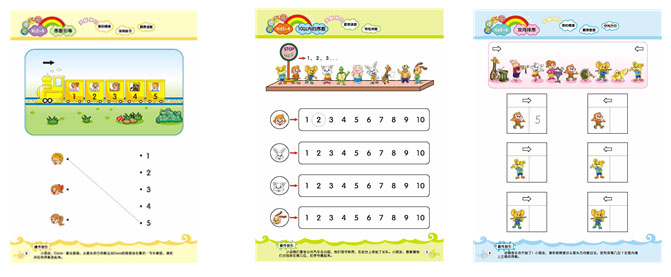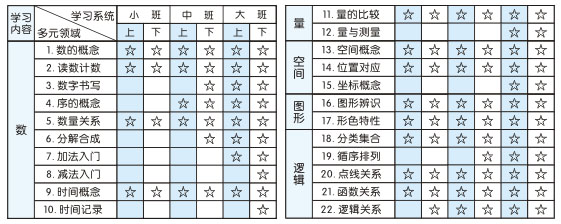首页 > Introduction > Feature
| >>Situational life Mathematical education activities are designed in the form of "thematic teaching", which arouses children's interest in learning, discovers and solves problems, and uses contextual stories to perceive mathematical concepts from multiple perspectives to gain rich and specific experience and achieve real understanding. | 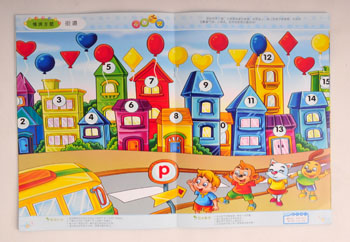 |
>> Whole brain development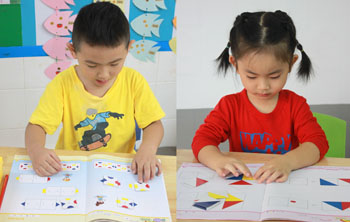 | Under the guidance of the forward-looking "multi-idea" and "multi-method" design concepts and the development of multiple intelligences; inspire young children to think, find methods, and balance the balanced development of the left and right brains.Through the matching of children's operation materials, let children accumulate rich operation experience through specific operations, understand mathematical concepts, and inspire creativity and thinking. |
>>Whole brain development Under the guidance of the forward-looking "multi-idea" and "multi-method" design concepts and the development of multiple intelligences; inspire young children to think, find methods, and balance the balanced development of the left and right brains.Through the matching of children's operation materials, let children accumulate rich operation experience through specific operations, understand mathematical concepts, and inspire creativity and thinking. |
|
>>Design of self-learning assessment exercises
Let children get the joy of success through their own efforts and improve their ability to learn actively.
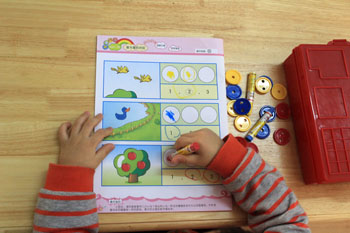
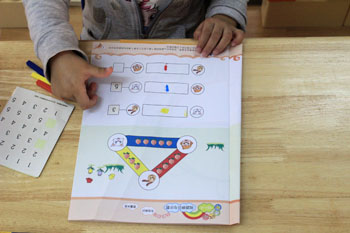
>>Divergent thinking mode-multi ideas, multi methods, multi modes, multi programs, spiral progressive orchestration
Multi-thinking: Encourage children to think from different perspectives, so that children can quickly figure out effective ideas to solve problems when dealing with various complex problem types.
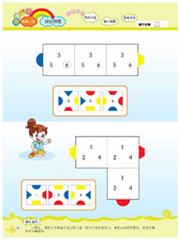

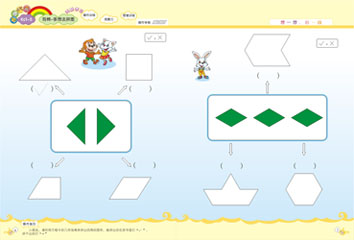
Multi-method: Solve the child's individual differences, let the child try different options, increase their flexibility, and find the best method to solve the problem.
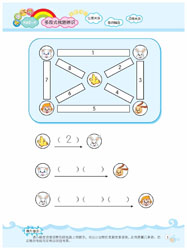
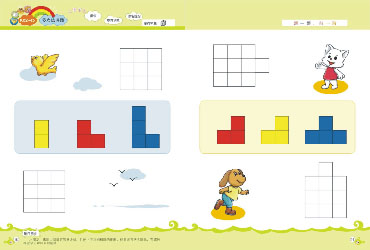
Multi-mode: Design different types of questions to hone children’s thinking skills, and allow them to accumulate rich experience in solving problems, make them flexible and improve their application ability.
1、Ordinal Correspondence Exercise 2、Algebraic addition
3、Forward and reverse readings within 10 4、Loss subtraction

Multi-procedure: solve problems step by step, improve the rationality and organization of thinking, separate and simplify complex problems, obtain the quality of logical thinking, and improve the ability to correctly solve complex problems

Spiral progressive orchestration: from shallow to deep, step-by-step orchestration, which conforms to the development of children's Psychological development and better completes the internal construction of mathematical knowledge.
Eg. Ordinal number’s learning
Ordinal number within 5 Ordinal number within 10 Sort in both directions
